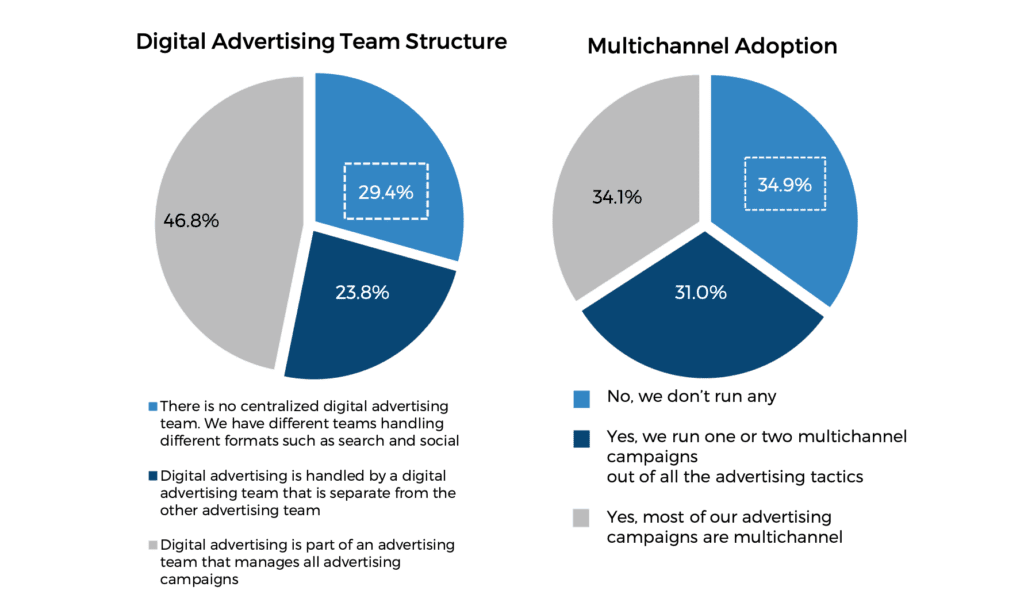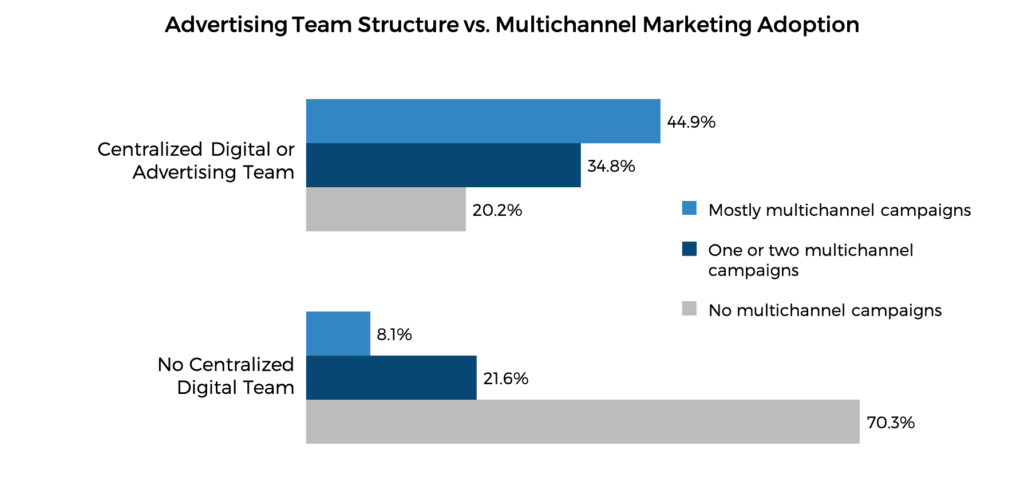As more and more of advertising budgets are shifted to digital and mobile channels, travel marketing teams are under greater pressure to deliver results and drive revenues. With the proliferation of ad formats, channels, and technology, it’s crucial to assess the relevance and effectiveness of each individual media offering and utilizes the right media mix and technology to ensure marketing success.
To help address these issues, Skift Research conducted a survey asking travel marketing professionals how they spend on major advertising channels and formats, how effective each channel and format is, how they adopt advanced marketing and measurement campaigns, and their priorities and goals for 2019.
Our newest Skift Research report, Digital Advertising Trends in Travel 2018, presents major findings from the survey and analyzes relevant trends that lead to better campaign executions. Chief marketing officers (CMOs) and other decision-makers responsible for marketing strategies to drive growth or specific marketing tactics can use this report to see how your company stacks up against peers, identify gaps, and optimize for better results.
Last week, we launched the latest report in our Skift Research service, Digital Advertising Trends in Travel 2018.
Below is an excerpt from the report. Get the full report here to stay ahead of this trend.
Preview and Buy the Full Report
More than half of travel companies haven’t integrated digital advertising teams into overall advertising teams, which creates a huge barrier to multichannel strategies
How a marketing team is structured reflects the company’s overall business strategy and can greatly impact marketing performance. While crucial in a marketing team’s advertising strategy, digital should be an integral part of the overall media plan. Well-planned and executed, multichannel campaigns can amplify the effectiveness of each individual channel/format more so than is possible when they are executed alone.
While 47 percent of travel companies surveyed have a centralized advertising team that encompasses digital and other ad channels and formats, 24 percent of them have separate digital advertising teams, and another 29 percent have different teams handling various formats and channels.
Exhibit 11: Digital Team Structure and Multichannel Marketing Adoption
Source: Skift Research
For companies with no centralized digital or advertising teams, 70 percent have never run any multichannel campaigns, 22 percent have run one or two multichannel campaigns out of all ad investments, and only 8 percent say most of their ad campaigns are multichannel. This is in stark contrast to companies with centralized digital or advertising teams, where only 20 percent have never run any multichannel campaigns and 45 percent run most of their ad campaigns in a multichannel fashion.
Exhibit 12: Digital Team Structure’s Impact on Multichannel Adoption
Source: Skift Research
Preview and Buy the Full Report
Subscribe now to Skift Research Reports
This is the latest in a series of research reports aimed at analyzing the fault lines of disruption in travel. These reports are intended for the busy travel industry decision maker. Tap into the opinions and insights of our seasoned network of staffers and contributors. Over 200 hours of desk research, data collection, and/or analysis goes into each report.
After you subscribe, you will gain access to our entire vault of reports, analyst sessions, and data sheets conducted on topics ranging from technology to marketing strategy to deep-dives on key travel brands. Reports are available online in a responsive design format, or you can also buy each report a la carte at a higher price.
from Skift https://ift.tt/2SmRBHg
via IFTTT


No comments:
Post a Comment
Note: Only a member of this blog may post a comment.